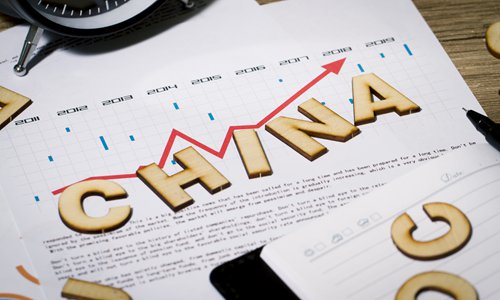HOME >> OPINION
‘Economic superpower’ label doesn’t fit China
Source:Global Times Published: 2019/9/25 16:44:07

Photo: IC
An analysis on the US media outlet CNBC website on Monday called China an "economic superpower." On the same day, Australian Prime Minister Scott Morrison called China the "newly developed economy." It is really not easy to respond to these comments by Westerners.
The 70th anniversary of the founding of the People's Republic of China is approaching. China is also showcasing its economic achievements at home. China's installed power generation capacity has reached 1.9 billion kilowatts, ranking first in the world according to figures released by the National Development and Reform Commission on Tuesday. The length of high-speed railways and expressways is also the highest in the world. Many of China's economic figures top the world.
Yet the labels such as "economic superpower" and "newly developed economy" still strike many Chinese as hyperbole. No one knows China better than the Chinese themselves. Our country's economy is diverse and complex, and its various dimensions do not point to the conclusion that it is a developed economy. Very few Chinese think that our country is already a developed society. There is a general aversion to self-proclaimed economic superpower.
The power of a country is often showed in terms of the GDP, but the real life of ordinary people is shaped more by GDP per capita. China with a huge population occupies a rare position in international relations: its comprehensive national strength is rising relatively fast compared to other countries, while the modernization of people's real life needs more time to improve.
Whether China is an economic superpower or a newly developed economy is not only an assessment, but also bears on China's actual interests. In recent years, Western public opinion likes to claim that China is a developed country. One of the most important reasons is the intent to deprive China of all the rights it is entitled to as a developing country and to ask China to shoulder some of the responsibilities of developed countries. In other words, they define China's level of economic development based on selfish considerations.
Facts show China's level of development. Despite the WTO's tariff preferences for developing countries, China is continually reducing the average tariff rate and reducing negative list for foreign capital. This is not what ordinary developing countries will do. China has been adjusting its foreign economic and trade relations according to the actual situation and has adopted a positive attitude in response to some demands of Western countries. But we are not a developed economy. It is a fact.
Chinese society needs to summarize its achievements, which is necessary to enhance social confidence. But China seeks to emphasize the extent of its progress and never exaggerate its development.
Powerful countries are not necessarily developed countries. India now has more national power than many moderately developed countries, but it is obviously not appropriate to include India in the ranks of developed countries. The Chinese people have the right to continue to improve their living standards. If the West does not mistake China for a developed country, it is conducive to support this right of the Chinese.
The fundamental thrust of economic development is the desire of the people of all countries to lead a better life. If the West pushes to include China in the list of developed countries, this is not true at first, and certainly will not get support and response from Chinese society. It is therefore unlikely to have a lasting impact on international relations.
RELATED ARTICLES:
Posted in: EDITORIAL